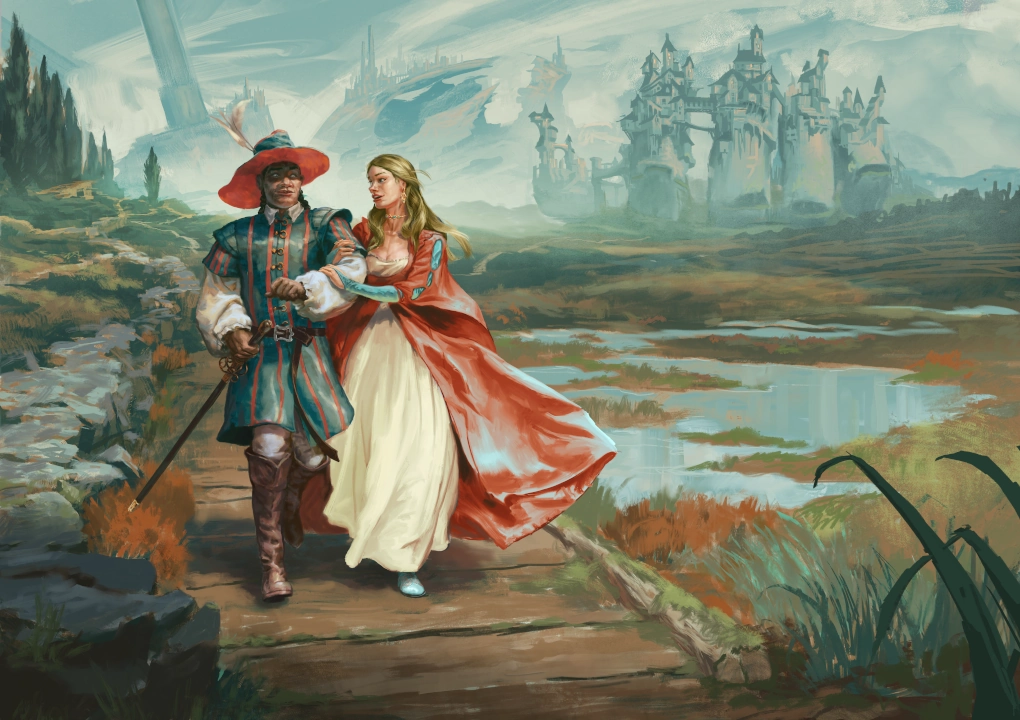Human
There is so much mystery and wonder in this world, and--for better or for worse--it seems we have chosen to explore it by any means necessary. -Ceril Valour, famed traveling Bard interpreting the motives of his culture for Elven royalty
Appearance
Humans vary greatly in appearance and include all manner of skin, hair and eye colors. Natural complexion is generally earth tones in a variety of shades, with hair the same, though blond or red hair of varying hues is not uncommon. The scope of eye color ranges across the visible spectrum, though black, brown, blue, or green are most common. Depending upon the relative level of sophistication, cultural norms, and available technology in a given human culture, dyes and other ornamentation make virtually any coloration possible. When compared to other humanoid races they are of about average height, though typically taller than elves (5 to 6½ feet). Their weight varies between about 100 to 250 pounds.
Height: 4 ft 10 in + 2d10 in
Weight: 90 lb + [2x STR] + 5d20 lb
Ecology and History
Humans are the most diverse and versatile of the races. Beginning as a primarily nomadic people, humans have a drive to explore and expand their home lands. This thirst for expansion has led human cities to become some of the largest and most numerous settlements of any race. These settlements are also the most diverse, having more mixed populations than the native settlements of other races.
Due to the relatively short life span of humans, their culture varies greatly from generation to generation. Boundaries between lands can change frequently with humans’ lust for power, and disagreements between settlements can occur quickly. Politics may also change swiftly among human cities, with power changing hands back and forth among a variety of individuals or ideological groups over time.
Humans are nothing if not adaptable, and typically relate well to other races, particularly dwarves who have an understanding of the human desire for power, community and glory. Since settlements of mixed-races are common, humans are typically accustomed to dealing with a variety of other cultures, making them good diplomats and merchants, though they thrive in all variety of professions. Humans become adventurers for many reasons, most commonly to serve a personal thirst for power and expansion, for materialistic means, or for revenge.
Like their great variety of appearance, humans also diverge considerably in their personality. Human behavior may ascribe to any degree of good, evil, law or chaos, but most humans are unaligned.
